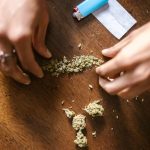Prague, the capital city of the Czech Republic, has recently seen a surge in the availability and popularity of Brazilian cocaine. This development has raised concerns among law enforcement and health officials, who are working to understand the implications of this new trend.
What is Brazilian Cocaine?
Brazilian cocaine, also known as “Brazilian snow,” refers to a type of cocaine that originates from Brazil. It is known for its high purity and unique cutting agents, which can make it more potent and potentially more addictive than other types of cocaine.
How is it Different?
Brazilian cocaine is distinct from other types of cocaine due to its production methods and chemical composition. It is often cut with other substances, such as lidocaine or benzocaine, which can enhance its effects and make it more appealing to users. However, these cutting agents can also increase the risk of adverse reactions and overdose.
Impact on Prague
The emergence of Brazilian cocaine in Prague has significant implications for the city’s drug scene; It has led to an increase in drug-related activity, with more users seeking out this new and potent form of cocaine. Law enforcement agencies are working to combat the spread of Brazilian cocaine, but it remains a challenging task due to its high demand and widespread availability.
Health Risks
The use of Brazilian cocaine poses serious health risks, including increased heart rate, blood pressure, and risk of overdose. The cutting agents used in Brazilian cocaine can also cause additional health problems, such as allergic reactions and respiratory issues. It is essential for users to be aware of these risks and to seek help if they are struggling with addiction.
- Increased risk of overdose: Brazilian cocaine is highly potent and can lead to overdose, especially when combined with other substances.
- Adverse reactions: The cutting agents used in Brazilian cocaine can cause allergic reactions, respiratory issues, and other health problems.
- Addiction: Brazilian cocaine is highly addictive, and users may experience withdrawal symptoms when trying to quit.
It is crucial for individuals to prioritize their health and well-being by avoiding the use of Brazilian cocaine and seeking help if they are struggling with addiction. By working together, we can reduce the spread of this dangerous drug and create a safer, healthier community.
Law Enforcement Efforts
The Czech police have been working tirelessly to combat the spread of Brazilian cocaine in Prague. They have increased patrols in areas known for drug activity and have been conducting regular raids on suspected drug dealers. Additionally, they have been working with international authorities to disrupt the supply chain and prevent more of the drug from entering the country.
Collaboration with International Authorities
The Czech Republic is a member of the European Union and has been working closely with other EU countries to share intelligence and best practices in combating the spread of Brazilian cocaine. This collaboration has led to several successful operations, including the seizure of large quantities of the drug and the arrest of key figures in the trafficking network.
Public Awareness Campaigns
In addition to law enforcement efforts, public awareness campaigns have been launched to educate the public about the dangers of Brazilian cocaine. These campaigns have been targeting young people, who are often the most vulnerable to the temptation of trying new and exciting substances. The campaigns have been using social media, posters, and other forms of advertising to get the message out and discourage people from trying the drug.
Support for Addicts
For those who are already struggling with addiction, there are several support services available. The Czech government has established a number of treatment centers and counseling services, which provide a safe and supportive environment for people to overcome their addiction. These services are free or low-cost, making them accessible to everyone, regardless of their financial situation.
- Counseling services: One-on-one counseling and group therapy sessions are available to help people overcome their addiction.
- Support groups: Support groups, such as Narcotics Anonymous, provide a safe and supportive environment for people to share their experiences and receive support from others who are going through similar struggles.
- Medication-assisted treatment: Medication-assisted treatment, such as methadone or buprenorphine, can help people manage their withdrawal symptoms and reduce their cravings for the drug.
The emergence of Brazilian cocaine in Prague is a serious concern, but it is not an insurmountable problem. With the combined efforts of law enforcement, international authorities, public awareness campaigns, and support services, it is possible to reduce the spread of this dangerous drug and create a safer, healthier community. By working together, we can overcome this challenge and build a brighter future for everyone.







This article highlights a very concerning trend in Prague, I hope the authorities take swift action to address this issue.
I appreciate the emphasis on the health risks associated with Brazilian cocaine use, it\
The use of cutting agents in Brazilian cocaine is particularly concerning, it\
It\
This article provides valuable insight into the world of Brazilian cocaine, I hope it raises awareness about the dangers associated with its use.
I had no idea that Brazilian cocaine was so potent, it\